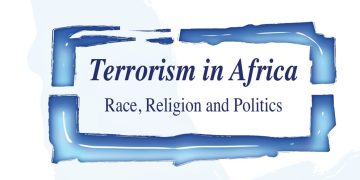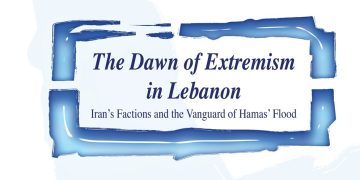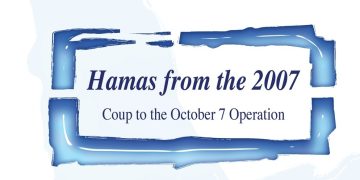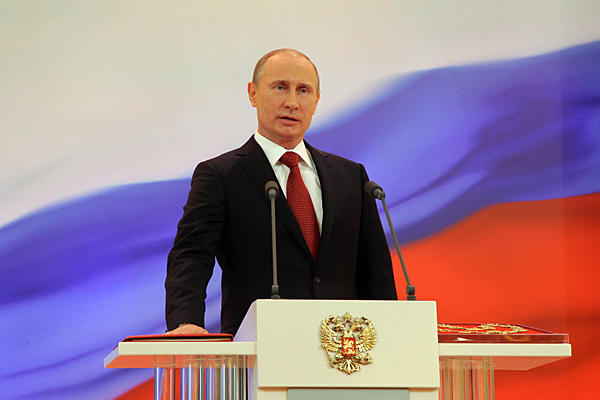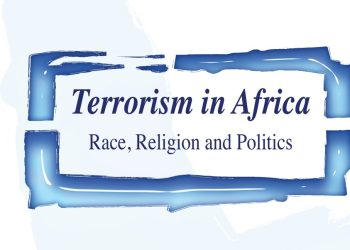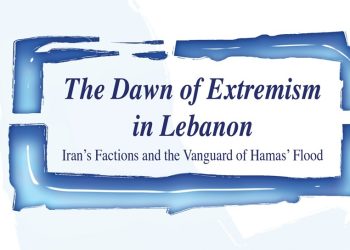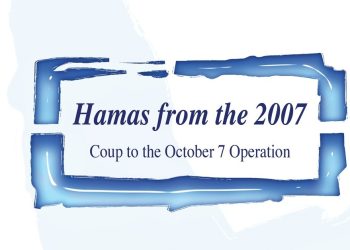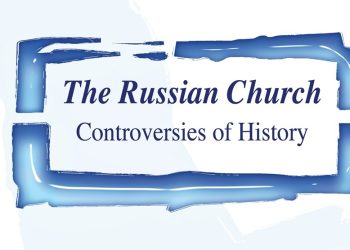Introduction. How Russia faces terrorism
Russia has been familiar with terrorism since the end of the 19th century, when this phenomenon was just beginning to emerge. After the collapse of the Soviet Union, Russia faced a series of political crises and outbreaks of separatism. Separatism in the North Caucasus was violent by its nature and transformed into terrorist activity. The agents of terrorism penetrated deep into the country to organize terrorist attacks and put forward their demands.
For example, in 2004 a series of major terrorist attacks were carried out in Russia.
On February 6, 2004, in a Moscow underground, a suicide bomber killed 40 people and 250 were injured.
On August 24, simultaneous explosions of two passenger aircraft with the death of 93 people were carried out.
In September 2004, for two days, teachers, pupils and their parents — more than 1,200 people in total — were detained by terrorists in the gym of school No. 1 in Beslan town (Republic of North Ossetia). The explosion killed 331 people, including 172 children. 559 people were injured.
March 29, 2010 in the Moscow metro as a result of two explosions killed 41 people, 88 people were injured.
January 24, 2011 at the airport “Domodedovo” in Moscow, a suicide bomber detonated an explosive device.
The most recent high-profile terrorist attack in Russia was the explosion in the St. Petersburg underground that occurred on April 3, 2017. 16 people were killed, about 50 people were injured.
After the emergence of ISIS in the Middle East region and involvement of Russia into Syrian crisis many attempts of terrorist attacks were in Russia, but some also outside of Russia.
On October 31, 2015, a Russian passenger aircraft Airbus A320 was blown up by terrorists over the central part of the Sinai Peninsula (Egypt), which became the most massive death of Russian citizens in a plane crash in the history of world aviation (7 crew members and 217 passengers were killed).
Until now, the threat of terrorism in Russia exists and special services and law enforcement agencies focused on this problem. Many terrorist cells were eliminated and many attacks were prevented. The Russian leadership is constantly turning to the governments of other countries with proposals for joint action to combat terrorism.
In Russian law, terrorism is defined as the ideology of violence and the practice of influencing public consciousness, decision-making by state authorities, local authorities or international organizations related to intimidation of the population and / or other forms of unlawful violent actions (Clause 1, Article 3 of the Federal Law dated 06.03.2006 N 35-FZ “On counteraction to terrorism” (as amended on 11/08/2011).
When comparing two interpretations of one concept, it is clear that the Russian definition is broader, covering not only the violent actions themselves, but also the ideology of violence. Indeed, without an understanding of the ideology of this phenomenon, its driving forces, objects, subjects, methods, etc., it is impossible to correctly assess the scale of the terrorist influence and develop a correct strategy to combat it.
In Russia, the legal framework for countering terrorism is the Constitution of the Russian Federation, universally recognized principles and norms of international legislation, international treaties of the Russian Federation, federal laws, regulatory legal acts of the President of the Russian Federation, regulatory legal acts of the Government of the Russian Federation, and regulatory legal acts of other federal state bodies adopted in accordance with them authorities.
The main provisions on countering terrorism are formulated in Law N 35-FZ and Decree of the President of the Russian Federation of February 15, 2006 N 116 “On Measures to Combat Terrorism” (as amended on September 2, 2012).
Terrorist activity is an activity that includes:
a) organization, planning, preparation, financing and implementation of a terrorist act;
b) incitement to a terrorist act;
c) the organization of an illegal armed formation, a criminal community (criminal organization), an organized group for the implementation of a terrorist act, as well as participation in such a structure;
d) the recruitment, arming, training and use of terrorists;
e) information or other aiding in the planning, preparation or implementation of a terrorist act;
f) the propaganda of the ideas of terrorism, the dissemination of materials or information calling for terrorist activities or justifying the need for such activities.
A terrorist act is the perpetration of an explosion, arson, or other actions that frighten the population and create the risk of death, causing significant property damage or other serious consequences, in order to influence decision-making by authorities or international organizations, as well as the threat of these actions same goals.
Counter-terrorism is the activity of state authorities and local authorities in:
a) the prevention of terrorism, including the identification and subsequent elimination of the causes and conditions conducive to the commission of terrorist acts (the prevention of terrorism);
b) the identification, prevention, suppression, disclosure and investigation of a terrorist act (the fight against terrorism);
c) minimize and (or) eliminate the consequences of manifestations of terrorism.
A counter-terrorist operation is a complex of special, operational-military, military and other measures using military equipment, weapons and special means to suppress a terrorist act, neutralize terrorists, ensure the safety of individuals, organizations and institutions, as well as minimize the consequences of a terrorist act (art. 3 Law N 35-FZ).
The Armed Forces of the Russian Federation can also be used in the fight against terrorism to:
– suppression of flights of aircraft used to commit a terrorist act or captured by terrorists;
– suppression of terrorist acts in inland waters and in the territorial sea of the Russian Federation, at marine production facilities located on the continental shelf of the Russian Federation, as well as to ensure the safety of national maritime navigation;
– participation in the counter-terrorism operation in the manner prescribed by this Federal Law;
– suppression of international terrorist activities outside the territory of the Russian Federation.[1]
Framework of Russian strategies within international cooperation
The Federal Law of the Russian Federation “On Countering Terrorism” determines that the Russian Federation, in accordance with international treaties, cooperates in the field of countering terrorism with foreign states, their law enforcement agencies and special services, as well as with international organizations. The Russian Federation, guided by the interests of ensuring the security of the individual, society and the state, prosecutes on its territory those accused (suspected) of involvement in terrorism, in accordance with the legislation of the Russian Federation.
Besides that we need to to mention other documents that relate to international activities, especially the Southeast Asia region. It is important to understand that there is no clear definition of Russia’s actions in the international arena. On the one hand, there are a number of documents, related to national security and foreign policy. But they are more likely to wear desirable and recommendatory character. A number of provisions that are spelled out in these strategies, despite their important nature, have never been realised. For example, in the national security doctrine of 2008, it was said that Russia has the right to apply its armed forces abroad to protect its citizens. But the case of Ukraine has shown that this item has not found its applications, although there were numerous facts indicating the possibility of its implementation.
A number of existing strategies also have some aspects that are difficult to put into practice. In other words: the desire and reality are different. However, a number of excerpts from these documents are needed to show the general trends and some limitations in the strategic thinking of the persons who made up these doctrines.
We will cover only those items that relate to the region under consideration or reflect the attitude towards the international community.
In The Foreign Policy Concept of the Russian Federation (approved by President of the Russian Federation Vladimir Putin on November 30, 2016)[2]we see several points connecting with Southeastern Asian issues.
80. Russia seeks to reinforce a comprehensive long-term dialogue partnership with the Association of Southeast Asian Nations (ASEAN) and achieve a strategic partnership. Efforts in this area will be supported by expanded cooperation within such frameworks as the East Asia Summit, which provides a platform for strategic dialogue between country leaders on conceptual issues related to the development of the Asia-Pacific Region, the ASEAN Regional Forum and ASEAN Defence Ministers’ meeting with the dialogue partners.
81. Russia promotes broad mutually beneficial economic cooperation in the Asia-Pacific Region, which includes the opportunities offered by the Asia-Pacific Economic Cooperation forum.
82. Russia is committed to establishing a common, open and non-discriminatory economic partnership and joint development space for ASEAN, SCO and EAEU members with a view to ensuring that integration processes in Asia-Pacific and Eurasia are complementary.
83. Russia views the Asia-Europe Meeting and Conference on Interaction and Confidence-Building Measures in Asia as relevant mechanisms for developing multi-faceted practical cooperation with the Asia-Pacific States and intends to take an active part in these frameworks. But Afghanistan and Pakistan are mentioned rather in negative context.
And point 15 is about global security and threats: The global terrorist threat has reached a new high with the emergence of the Islamic State international terrorist organization and similar groups that have descended to an unprecedented level of cruelty in their violence. They aspire to create their own state and seek to consolidate their influence on a territory stretching from the shores of the Atlantic Ocean to Pakistan. The main effort in combating terrorism should be aimed at creating a broad international counter-terrorist coalition with a solid legal foundation, one that is based on effective and consistent inter-state cooperation without any political considerations or double standards, above all to prevent terrorism and extremism and counter the spread of radical ideas.
Next, consider the presidential Decree of 31.12.2015 N 683 “On the national security Strategy of the Russian Federation.” First of all, it should be pointed out that “as a Central element of the system of international relations, Russia sees the United Nations and its Security Council”.
It has a number of items on the South Asian region.
88. Russian Federation increases cooperation with BRICS partners (Brazil, Russia, India, China, South Africa), RIC (Russia, India, China), Shanghai cooperation organization, Asia-Pacific economic cooperation forum, the G20 and other international institutions.
Organizations, including in the form of dialogue and cooperation on a bilateral basis. Special attention is paid to the work with countries wishing to join the Organization as full members.
95. The Russian Federation supports the establishment of reliable mechanisms in the Asia-Pacific region to ensure regional stability and security on a non-bloc basis, improving the effectiveness of political and economic cooperation with the countries of the region, expansion of cooperation in the field of science, education and culture, including in the framework of regional integration structures.
It is worth mentioning Doctrine of Information Security of the Russian Federation (Approved by Decree of the President of the Russian Federation No. 646 of December 5, 2016).[3]
28. A strategic objective of information security in the field of strategic stability and equal strategic partnership is to create a sustainable system of conflict-free inter-State relations in the information space.
29. The main thrusts of ensuring information security in the field of strategic stability and equal strategic partnership are the following:
– protecting the sovereignty of the Russian Federation in information space through nationally-owned and independent policy to pursue its national interests in the information sphere;
– taking part in establishing an international information security system capable of effectively countering the use of information technologies for military and political purposes that are contrary to international law, or for terrorist, extremist, criminal or other illegal purposes;
– creating international legal mechanisms taking into account the specific nature of information technologies and intended to prevent and settle conflicts between States in information space; promoting in international organizations the position of the Russian Federation advocating equitable and mutually beneficial cooperation of all interested parties in information sphere.
Exactly prerequisites for enhancing the interaction of ASEAN countries with Russia, and in particular for filling in the practical content of the Joint Declaration of the Russian Federation and ASEAN “On Cooperation in the Fight against International Terrorism”, which covers a wide range of possible areas of interaction among the participants, were formed more than 15 years ago.[4]
Russia has been a full-fledged dialogue partner with the organization since July 1996.
Geopolitical landscape of region
Besides normative dimension Southeastern Asia has significant geopolitical role and external actors interested to influence or dominate there.
Although the probability of the formation of an Islamic caliphate in the territory of Southeast Asia is low, nevertheless, in the context of the spread of international terrorism, the risk of the rapid radicalization of the Muslim community increases. For the Muslim countries of Southeast Asia, this has serious political consequences, which are expressed in a possible split in society with the manifestation of its religious intolerance, in undermining the stability of still fragile democratic regimes.
Despite its apparent distance from recent intense terrorist activity, the Southeast Asian region has become part of the global terrorist loop. The recent trend has been the movement of terrorist fighters through Southeast Asia (“broken travel”) along the route China – Thailand – Russia – the Balkans – the Middle East. There is information about the routes of militants to ASEAN countries, in particular, to the island of Sulawesi along the route China (XUAR) – Thailand (Bangkok) – Malaysia – Indonesia.[5]
It should be noted the practical embodiment in the transition of terrorist groups of Southeast Asia to the network structure of the organization, which turned out to be a fairly effective way of confronting official law enforcement agencies in different countries. According to Russian and foreign experts, the use of the network principle of organization gives terrorist groups significant opportunities.[6] The effective use of modern communication technologies and means of communication has allowed terrorists to form a unified information and communication environment. This creates reliable channels of communication between cells, provides the possibility of their activity in offline mode, significantly increases the effectiveness of extremist propaganda.[7]
In the field of management, the network principle provides high speed decision-making, the possibility of operational concentration of forces and means in priority areas (objects), planning of “point” operations, the possibility of effective activities under command extraterritorial center.
Organizationally, this principle allows you to move from activities as part of relatively large, and therefore more vulnerable to the attacks of security forces against structures, to work as part of the “small cells” and individual lone fighters (“lone wolves”), united for a short time to solve specific problems. The network principle of organization allows the terrorists to provide a high level of conspiracy and physical protection for militants.[8]
An important dimension of the “shadow integration” of the subregion is the link between international terrorism and maritime piracy. One of the prominent Western researchers of maritime piracy, John S. Burnett, formulates this question as follows. Historically, there has never been a clear distinction between piracy and terrorism. After the attacks on the World Trade Center and the Pentagon in 2001, all governments countries of the world finally realized that the war at sea was actually waged by terrorists long before September 11th. Therefore, it was impossible not to come to the conclusion that these two types of crime differ little from each other and we can no longer afford to ignore piracy or deny it close ties to terrorism. It can cost us too much.[9]
A significant difference in strategic settings remains between maritime piracy and terrorism: while terrorists pursue ideological and political goals, the content of most pirate attacks remains the achievement of “economic” goals, such as the seizure of ships and their crews with a view to obtaining a ransom. At the same time, the use of pirate methods is increasingly becoming part of the practice of a number of terrorist organizations in Southeast Asia. Pirate methods are especially actively used to raise funds to continue the terrorist activities of Jemaa Islamiya, Abu Sayyaf, and Kumpulan Mujahaddin (Malaysia).
In context of terrorism Russian experts pointed out that in the near future, the United States will probably advocate strengthening its own military presence in the region, hiding behind statements about the need to counter terrorism in Southeast Asia, and blaming China, at least in part, for the growth of terrorist activity in region, including, taking into account the Uyghur issue.
Then the terrorists in Southeast Asia will become a necessary element of the regional geopolitical landscape, without which the United States and its allies will not be able to find clear justifications for their preventive actions against China. The result will be a merger of two anti-Chinese ideologies: a human rights one, which condemns Beijing for its excessively harsh policies in Xinjiang, and an anti-terrorist one that justifies Washington’s attempts to strengthen its presence in key strategic points of the region under the pretext of combating terrorism. But if the jihadists became the unspoken US allies in Syria, why cannot jihadists of Southeast Asia become them? The question is rhetorical.[10]
Emerging of the Russian role in the ASEAN counter-terrorist activity
Events in 2002-2003 showed that in the field of regional cooperation of the countries of Southeast Asia in the fight against terrorism, not everything is going well. Some experts argued that the demonstration of friendly relations between the member countries of the ASEAN hides an alarming picture of the lack of cooperation between the special services. And the Western powers criticized the leaders of the countries of Southeast Asia about the insufficiency of their efforts to combat terrorism.
However, in the mid-2000s it was noted that:
– The cooperation between the intelligence services and internal security services of the ASEAN member countries and their regional partners has been and remains at a fairly high level (although, of course, it faces certain difficulties) and deserves more balanced assessments;
– Factors that seriously complicate state and regional efforts to combat terrorism are internal structural and institutional costs associated primarily with the limited capabilities of the states of the region, emerging problems of the legitimacy of authorities, and rivalry within the bureaucratic apparatus;
– The suspicious and somewhat wary attitude of the countries of Southeast Asia towards the antiterrorist struggle is also a reaction to the militaristic approach of the Americans to solving this problem.[11]
Cooperation of the ASEAN countries with Russia for combat terrorism and extremism developed step by step. Russia also rejected hard line militant approach of the U.S. and Western powers and efforts of Moscow were welcomed by ASEAN.
During last years relations between Russia and ASEAN countries as well as Russia-ASEAN dialogue were intensified. Because the political tensions between Russia and Western states Moscow started to counter balance and looking East.
As a vivid example of Russia’s participation in countering the financing of terrorism, one should mention its active work within the framework of the intergovernmental organization Financial Action Task Force (FATF), the main task of which is to develop world standards in the field of combating money laundering criminal proceeds and the financing of terrorism. FATF members are 35 jurisdictions and two international organizations. The Russian Federation was admitted to its membership in June 2003. Russia took an active part in the FATF research on identifying ISIL financial supply channels, as well as new sources of financing of terrorism. In 2016, for the first time in the FATF’s more than 25-year history, at the initiative of Russia, the universal Standards for the Suppression of the Financing of Terrorism were adjusted, which now explicitly prohibit the provision of not only financial, but also any material support to ISIS, including trade in hydrocarbons with it and other natural resources.
From ASEAN countries Singapore and Malaysia are members of the FATF.
At the events of the Association of Southeast Asian Nations (ASEAN) in Manila, on August 6-8, 2017 the Russian delegation took part in the ministerial meeting of the East Asian Summit and in the ASEAN Regional Forum.
A draft document on the fight against the propaganda of terrorism was prepared at this meeting. This document, initiated by Indonesia, has been discussed for several months at expert working groups, which included experts from Russia, an ASEAN partner country.
Document was agreed at the ministerial level and in autumn 2017 was presented in Manila to the summit of ASEAN countries and organization partners.
From the very beginning, Russia approved and supported the development of such a document. Considering that the East Asian Summit includes 18 states, and the ARF – 27 states, the ASEAN venue is an influential force at the international level.
For its part, Russia is implementing security initiatives in Southeast Asia (Southeast Asia). According to Minister of Foreign Affairs of Russia Sergey Lavrov, Moscow has increased the number of quotas for law enforcement officials of Southeast Asian countries who wish to undergo a counter-terrorism internship in Russia, on the basis of the Ministry of Internal Affairs and the FSB (Federal Security Service of Russia). Also, the Minister noted, that police cooperation between Russia and ASEAN (so called ASEANPol) continues. In addition, regular meetings of ASEAN defense ministers and its partners, including the Russian Federation, are held.[12]
Need to mention that during the Russia-ASEAN Summit in Sochi (Russia) on May 19-20, 2016 was implemented strategic partnership. During the Manila Summit the ministers are planned to adopt a roadmap on implementing the recommendations of the Russia-ASEAN Eminent Persons Group on strengthening interaction in the political, trade, economic, social and cultural areas, as approved by the leaders in Sochi.
Russian Ministry of Foreing Affairs also noted before summit that “We think it important in this connection to continue promoting the multilateral dialogue on forming regional security architecture in the EAS venue. There were six rounds of relevant consultations: in Bandar Seri Begawan (November 2013), Moscow (April 2014), Jakarta (October 2014), Phnom Penh (July 2015), Beijing (July 2016), and Bangkok (May 2017). We intend to continue the work in this area on a permanent basis, albeit in a more advanced format, in the venue of the EAS permanent representatives to ASEAN in Jakarta with the participation of the heads of relevant departments of foreign ministries. In light of the growing threat of international terrorism, we regard the EAS counterterror emphasis as timely. Russia and Indonesia have cosponsored a declaration on countering the spreading of terrorist ideology to be submitted for approval at the Philippines summit. We hope that this document will be widely supported by our forum partners.”[13]
On August 9, 2017, a representative office of ASEAN was opened in Jakarta, where the ASEAN headquarters are located.
Russia and the Republic of Indonesia in 2017 also agreed to progressively build up counter-terrorism cooperation at key international venues, including the UN, APEC, ARF and others.
Russian President Vladimir Putin attended the plenary meeting of the Russia-ASEAN Summit in Singapore in November 2018.
During the 17th Meeting of the ASEAN-Russia Joint Cooperation Committee (ARJCC) that took place at the ASEAN Secretariat in Jakarta on 2 April 2019 ASEAN Member States proposed to expand ASEAN-Russia ties in different fields from political and security issues to science and education.[14]
There is an opinion in Russia that the working groups on countering terrorism of the East Asian Summit specializing in regional and global security in the Asian-Pacific Region, as well as the ASEAN + 8 Conference of Defense Ministers, to which Russia is a party, could become the main security cooperation formats. Along with this, the Russian Federation could facilitate the involvement of ASEAN countries in the work of the CSTO and SCO anti-terrorist centers.
Bilateral agreements between Russia and ASEAN members also significant.
Russia and Cambodia are promoting bilateral cooperation especially in the fight against terrorism and cyber threats. In July 2019 Russian Ambassador to Cambodia Dmitry Tsvetkov said in an interview that both countries jointly fight against terrorism and cyber threats “with regard to new conditions and international reality”.[15] Before in March 2019 Cambodian military delegation headed by Lieutenant General Hun Manet, commander of the Royal Cambodian Army and head of the national anti-terrorism center visited Russia and discussed cooperation between countries in the spheres of defense and security.
In May 2019 Brunei joined the International Counter-Terrorism Database created by Russia’s Federal Security Service with the view to tracking the movement of foreign terrorist militants across the world. Both countries step by step promoting military and military-technical cooperation, as well as working together on countering the terrorist threat, drug trafficking, transnational crime, and other security challenges.[16]
The Russian side also noted that Indonesia made deliberate efforts to promote the Russian-ASEAN dialogue as its coordinator.[17]
Because some members of ASEAN are in the Organisation of Islamic Cooperation (OIS) need to mention latest news of cooperation between Russia and OIS too. Secretary-General of the Organisation of Islamic Cooperation Yousef Al-Othaimeen visited Moscow July 3, 2019. Foreign Minister Sergey Lavrov during meeting with him noted that “Our relations have been expanding dynamically since Russia was granted observer status at your organisation in 2005. We highly value our regular dialogue on current international issues, including and above all crisis management issues that are still relevant in the Islamic world… Our efforts are certainly always relevant in fighting international terrorism, which is a highly important cooperation track where we also have a good dialogue experience”.[18]
Index of the extremist/terrorist organizations in South-East Asia: view from Russia
Dr. of Political Science, Lead Research Fellow of the Primakov Institute of World Economy and International Relations of the Russian Academy of Sciences Mrs. Natalia Rogozhina who is expert on terrorism issues in the Southeast Asia noted that ISIS applies different political instruments considering propaganda of jihad in Internet as the most effective way to exert ideological influence on local Muslim population. Because of this activity ISIS has resulted in renovation of terrorism in South-East Asia and emergence of different small terrorist cells, what leads to upgrading the level of terrorism threat in the region. The impact of ISIS on political situation in the region is displayed directly — by promoting extremism and reinforcing the threat of terrorism and indirectly — by intensifying the process of Islamic radicalization in the political development of Muslim countries of South-East Asia.[19]
Mrs. Natalia Rogozhina provided list of the ASEAN extremist organizations claimed support for the Islamic State (prohibited in Russia).[20]
Indonesia:
Jamaah Ansharut Tauhid (JAT)
Mujahidin Indonesia Timur (MIT)
Mujahidin Indonesia Barat (MIB)
Ring Banten
Jamaah Tauhid wal Jihad
Forum Aktivis Syariat Islam (FACSI)
Pendukung dan Pembela Daulah
Gerakan Reformasi Islam
Asybal Tauhid Indonesia
Kongres Umat Islam Bekasi
Umat Islam Nusantara
Ikhwan Mujahid Indunisi Fie
Jazirah Al Mulk (Ambon)
Ansharul Khilafah Java
Halawi Makmun Group
Gerakan Tauhid Lamongan
Khilafatul Muslimin
Laskar Jundullah
DKM Masjid Al Fattah
The Philippines:
Abu Sayyaf
Bangsamoro Islamic
Freedom Fighters
Jama’at Ansar Al-Khilafa
Malaysia:
BKAV
BAJ
DIMCIA
ADI
Darul Islam Sabah
Thailand:
Barisan Revolusi Nasional – Koordinasi (BRN-K)
Gerakan Mujahidin Islam Patani (GMIP)
Barisan Bersatu Mujahidin Patani (BBMP)
The Patani United Liberation Organisation (PULO).
Any organization or group affiliated with Islamic State recognized in Russia as potential danger for national security. In other hand Russia can learn from counter-terrorist activity of partnering agencies in the ASEAN countries and to use this experience for domestic routine work.
In other hand we see that four countries from ASEAN presented in this list of terrorist organizations only. Although there are paramilitary groups in Myanmar, they are more likely to be rebel organizations, not terrorist cells. The crisis with the Muslims Rohingya is known in Russia, but since Moscow has traditionally pursued a policy of non-interference in the internal affairs of other states, sporadic attacks in Myanmar are not considered by the Russian side as a threat to international security.
Laos, Vietnam, Brunei, Cambodia, Singapore are considered relatively safe countries according to the international rating, therefore counter-terrorist activities there are mainly preventive in nature. Nevertheless, cooperation between the Russian special services and authorized agencies in these countries is ongoing.
Conclusion
Russia-ASEAN cooperation in fight terrorism is multi-layer and long term strategic initiative. The interaction takes place both through ASEAN-Russia and in the format of bilateral cooperation with individual countries. The supply of weapons, advanced technologies dual-use equipment, the training of personnel from ASEAN countries in Russia, the exchange of databases and operational information, especially regarding the movement of suspects of connections with terrorist organizations, the fight against propaganda of extremism, including on the Internet and financial intelligence, aimed at detection and blocking of suspicious funds are the main activities in this cooperation. In addition, there is a constant exchange of experience, as well as humanitarian, educational and cultural activities that, according to the soft power method, help strengthen interstate ties and develop civil societies in ASEAN countries.
[2] The Foreign Policy Concept of the Russian Federation (approved by President of the Russian Federation Vladimir Putin on November 30, 2016). Available at:
http://www.mid.ru/en/foreign_policy/official_documents/-/asset_publisher/CptICkB6BZ29/content/id/2542248
[3] Doctrine of Information Security of the Russian Federation (Approved by Decree of the President of the Russian Federation No. 646 of December 5, 2016) 5 December 2016. Available at:
http://www.mid.ru/en/foreign_policy/official_documents/-/asset_publisher/CptICkB6BZ29/content/id/2563163
[4] ASEAN-Russian Federation Joint Declaration for cooperation to combat international terrorism. Jakarta, Indonesia, 2 July 2004 // ASEAN Documents on Combating Transnational Crime and Terrorism. A compilation of ASEAN Declarations, joint declarations and statements on combating transnational crime and terrorism / ASEAN Secretariat. Jakarta, 2007. P. 57–59.
[5] Кутовая Е.А., ООН: Проблема с терроризмом и государства Юго-Восточной Азии // Юго-Восточная Азия: Актуальные проблемы развития № 34, 2017. С. 102.
[6] Гладченко Леонид, Угроза новой волны исламского терроризма в Юго-Восточной Азии // Проблемы Национальной Стратегии № 4 (31) 2015.
[7] Леонид Савин. Сетецентричная и сетевая война. Введение в концепцию. М.: Евразийское движение, 2011.
[8] Добаев А. И. Хавала: неофициальная система финансирования терроризма / А. И. Добаев // Южнороссийское обозрение. Ростов н/Д., 2010. № 65. С. 79–80.
[9] Burnett J. S. Dangerous waters: Modern piracy and terror on the High Seas. New York : Dutton, 2002. P. 284.
[10] Владислав Гулевич, Кому может быть выгодна угроза исламского терроризма в Юго-Восточной Азии? Международная жизнь, 18.11.2014. Available at: https://interaffairs.ru/news/show/12112
[11] Сергей Веселовский. Борьба с терроризмом в странах Юго-Восточной Азии, 19 сентября 2005
https://polit.ru/article/2005/09/19/veselovsky/
[12] Константин Волков, Юго-Восточная Азия и Россия договорятся о борьбе с террористами, 08.08.2017.
Available at: https://rg.ru/2017/08/08/iugo-vostochnaia-aziia-i-rossiia-dogovoriatsia-o-borbe-s-terroristami.html
[13] Comment by the Information and Press Department on Foreign Minister Sergey Lavrov’s participation in the Russia-ASEAN Ministerial Meeting, the EAS Foreign Ministers’ Meeting, and the 24th Session of the ASEAN Regional Forum on Security, 04.08.17.
Available at: http://www.mid.ru/ru/foreign_policy/news/-/asset_publisher/cKNonkJE02Bw/content/id/2832394
[14] Press Release of the Co-Chairs of the 17th ASEAN-Russia Joint Cooperation Committee, 4 April 2019
Available at: https://asean.org/press-release-co-chairs-17th-asean-russia-joint-cooperation-committee/?highlight=Russia
[15] Russia, Cambodia jointly fight against terrorism and cyber threats, says envoy, 11 July 2019.
Available at: http://www.mid.ru/en/web/guest/nota-bene/-/asset_publisher/dx7DsH1WAM6w/content/id/3718495
[16] Foreign Minister Sergey Lavrov’s statement for the media during the joint news conference following talks with Second Minister of Foreign Affairs of Brunei Darussalam Dato Erywan Yusof, Moscow, May 24, 2019.
Available at: http://www.mid.ru/en/web/guest/meropriyatiya_s_uchastiem_ministra/-/asset_publisher/xK1BhB2bUjd3/content/id/3658993
[17] Вступительное слово Сергея Лаврова на Министерском совещании Россия-АСЕАН, 31.07.2019
Available at: https://interaffairs.ru/news/show/23350
[18] Foreign Minister Sergey Lavrov’s opening remarks during talks with Secretary-General of the Organisation of Islamic Cooperation Yousef Al-Othaimeen, Moscow, July 3, 2019. 3 July 2019.
Available at: http://www.mid.ru/en/web/guest/meropriyatiya_s_uchastiem_ministra/-/asset_publisher/xK1BhB2bUjd3/content/id/3708973
[19] N.G. Rogozhina, The Threat of Terrorism in SouthEast Asia. Vestnik RUDN. International Relations, 2017 Vol. 17 No. 4, 697— 709. DOI: 10.22363/2313-0660-2017-17-4-697-709
[20] Наталия Рогожина, Радикальный исламизм в Юго-Восточной Азии. Краткий обзор основных экстремистских организаций и их лидеров в странах АСЕАН.
Available at: https://russiancouncil.ru/asean-extremism


